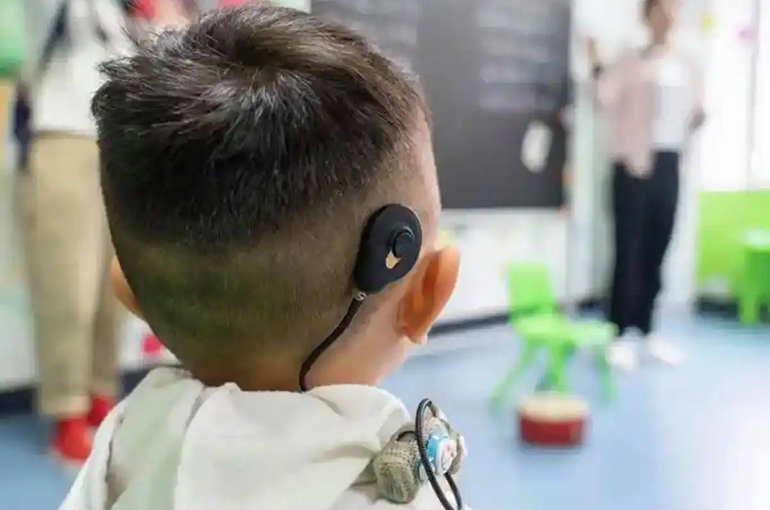Select Language:
A Chinese medical team led by Shu Yilai, a professor at the Shanghai Eye and Ear, Nose, and Throat Hospital affiliated with Fudan University, recently conducted a groundbreaking study comparing gene therapy and cochlear implants in treating congenital deafness in children. The results favored gene therapy as the more effective treatment.
Eleven children who received gene therapy targeting the OTOF gene demonstrated stable improvements in hearing, with faster gains in speech development, noise recognition, musical pitch accuracy, auditory cortex processing, and overall quality of life compared to 61 children treated with cochlear implants. The study’s findings were published in Jama Neurology on July 21.
Children were assessed across various aspects, including hearing thresholds, speech recognition, and music perception, one year after treatment. This study is notably the first worldwide to systematically compare the multidimensional auditory and speech perception outcomes between children receiving cochlear implants and those undergoing OTOF gene therapy, which targets an essential protein called otoferlin involved in hearing.
Currently, there are no clinical drugs available for congenital deafness, with cochlear implants being the only treatment option. However, implants rarely restore natural hearing perfectly and usually offer limited improvement in noise and music perception, along with the need for ongoing maintenance.
This Chinese study marks a major advancement in congenital deafness treatment. The promising results of OTOF gene therapy suggest it may soon become part of clinical practice, transforming how deafness is addressed and offering insights for treating other types of hearing loss.
Hearing loss affects roughly 20% of the global population, with about 26 million individuals experiencing congenital deafness. Approximately 60% of these cases are linked to genetic factors, with over 200 known pathogenic genes associated with this condition.






